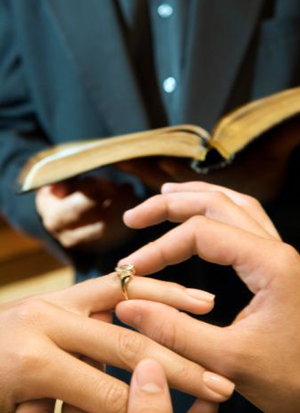
Irecently read Jenna Birch’s article A Christian’s Take: God Doesn’t Approve Of Gay Marriage and found it entertainingly disturbing. I would like to thank the author for a well-written opinion piece that is more “personal opinion” than “gay-bashing,” and using the Bible as a reference and not as a shield. That being said, I cannot agree with you, or disagree with you, because I don’t fully understand the point to your article, other than to add to the thousands of other articles that suggest homosexuality is an abomination, written with Biblical references that have arguably been taken out of context.
The question isn’t whether or not homosexuality is an abomination, or if it’s wrong, or if the Bible does or doesn’t say so. The more meaningful question is how should we, as a culture and a society, respond and react to homosexuals, the rights of homosexuals, and the inclusion of homosexuals into accepted society?
The most important and valuable statement that I took from your article was your bottom line: “God hates sin. But he loves the one who commits the sin.”
Granted, there are members of the homosexual community who are not great people, just as there are members of each culture and society who are less than desirable, and we should not, as humans nor as Americans, place judgment on groups as a whole because of the actions or intentions of a sub-group of their community. But that could be summed up with the good Christian saying “Thou shalt not judge,” (another element of the Christian community that is often forgotten about).
So if we shouldn’t judge, and if we shouldn’t hate, then what should we—as Christians or otherwise—and human beings do? Love. As a psychologist, I’ve seen and dealt with my fair share of members in the gay community. For the most part, they just want to be loved, and to love one another. And as long as there isn’t someone shouting in their face telling them how horrible they are, how they’re bound for a life in hell and that in order to save themselves they should join the group who’s doing the yelling and the screaming and the hating, the majority will approach you with open arms and with love. One of my former clients put it best when he said, “Anti-gay Evangelical Christians, with their hate-speak and their screaming, do not paint a pretty picture of Heaven if Heaven is filled with people like them.”
And back to the sin is sin comment—sins are equal, which makes murdering a child equally as horrible in God’s eyes as wearing polyester or planting two crops side by side or touching the skin of a dead pig. We can’t choose which sins we want to see as sins and which ones we want to ignore, the Bible doesn’t work that way. For most religions, sins of omission carry the same weight as sins of commission.
In the end, it’s all up to God. Unless of course God doesn’t exist, in which case it won’t matter anyway. But gays, like ALL people, should have the right to be recognized as people, as couples, and as Americans. They should have the same rights as any couple—the right to hold their dying partners hand in a hospital, the right to file joint tax returns, the right to raise children in a household full of love! Even our Judeo-Christian government has passed laws to this effect.
Denying homosexuals rights is less about protecting the rights of others and more about supporting discrimination of God’s children. I believe we should love each other regardless, if for no other reason than because we’re all human, because we’re all “God’s Children.” If God has a problem with homosexuals, then one should assume God will sort it out.
I urge you to read My Take: Bible condemns a lot, so why focus on homosexuality?, an article by Yale Divinity School graduate, Jonathan Dudley (author of Broken Words: The Abuse of Science and Faith in American Politics) who concludes that “opponents of gay marriage aren’t defending the Bible’s values. They’re using the Bible to defend their own.”
In less than a month I’ll be 70 years old. I hope to see another 30 or 40 years, but I know that my day will come sooner than later. And when I get to wherever I’m going, if any such place exists, I’d like to hear God say, “Welcome, my child,” instead of, “THAT’S NOT WHAT I WAS TALKING ABOUT!”
